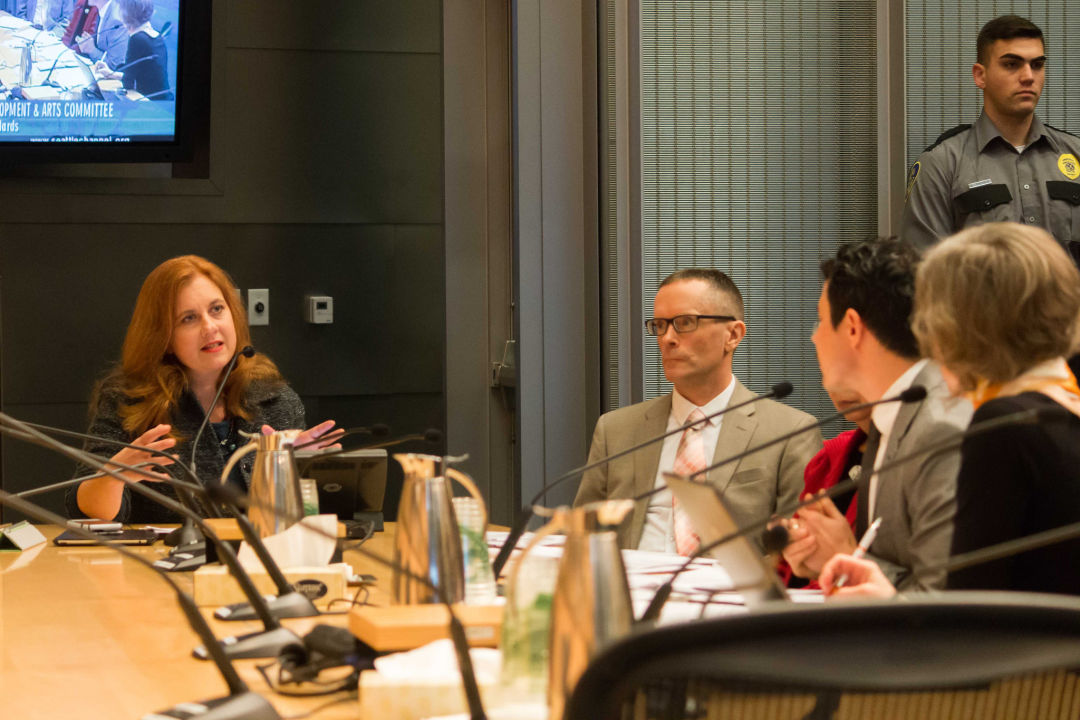The City Has an Even Shorter Statute of Limitations for Sexual Harassment

Image: Seattle City Council
A few weeks ago, council member Lisa Herbold's legislative aide got a call from a woman who wanted to report an incident of sexual harassment on her college campus. By the time she got referred to the Seattle Office of Civil Rights, the city's statute of limitations on harassment claims—within 180 days of the incident—had already passed.
The woman specifically called, and didn't send an email, to avoid public disclosure of her name, according to Herbold's office. But her call brought Herbold's attention to the fact that the city has a shorter statute of limitations on harassment claims than other allegations, like housing discrimination.
Now Herbold wants to extend the statute through her civil rights committee. The city generally sets a one-year limit for human resource complaints like housing discrimination; Herbold said she would look to extend the statute on harassment to at least one year comparable to other types of claims, if not longer.
"We understand that it often takes time for people to come forward because of shame, fear of reprisals, denial, history of prior sexual violence, and lack of information about what constitutes sexual harassment and how to report it," Herbold wrote in a letter to Mayor Jenny Durkan last week.
Herbold asked that the city review human resource practices on sexual harassment claims and consider more training for city employees. After complaints from Seattle City Light employees on sexual harassment, Durkan fired City Light CEO Larry Weiss and said she would address sexual harassment problems within the city.
The city's potential policy change comes during a national conversation around sexual harassment and assault. The Seattle Office of Civil Rights only deals with civil cases. On the state level, legislators are also considering whether to remove the statute of limitations on rape and other criminal sex offenses; Washington state also has one of the shortest statutes for rape in the country.
Durkan told staff in December that effective immediately, no city department can settle a grievance related to harassment claims without a 30-day notice to the Department of Human Resource director. One of the concerns Durkan and Herbold addressed was whether individual city departments had different standards for dealing with harassment claims.
Herbold also said the city doesn't provide a clear definition of sexual harassment, potentially making it more difficult for employees to navigate the system and file claims. According to Herbold's office, the city developed the 180-day statute years ago based off policies by the Equal Employment Opportunity Commission. It's unclear why the EEOC has a shorter statute for harassment claims that included sexual harassment.
Herbold didn't have an estimate for legislation heading to committee, and said it could be one element to other tweaks to the code she might pursue.
"We also want to hear about the experience of individual workers either filing complaints or choosing not to, and why complaints might go unreported here at the city," Herbold told PubliCola.




